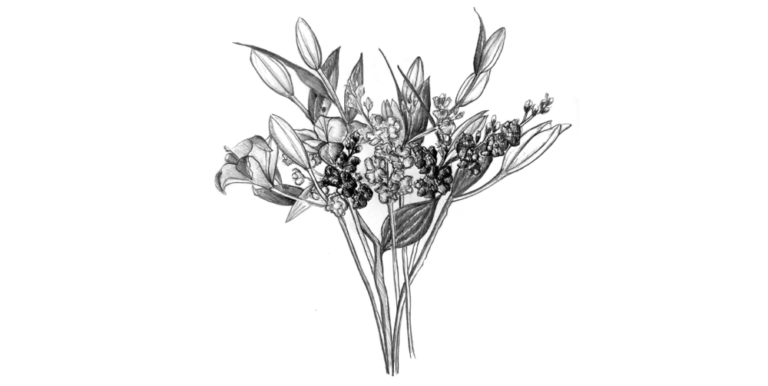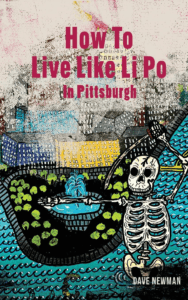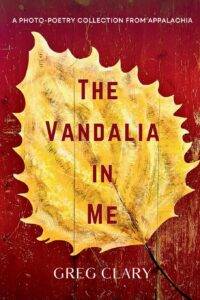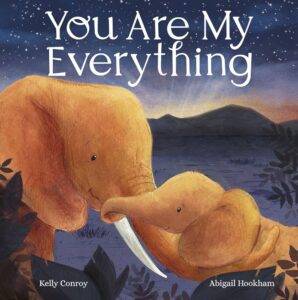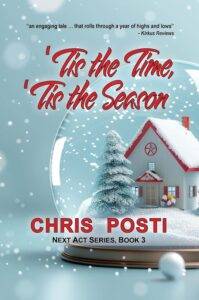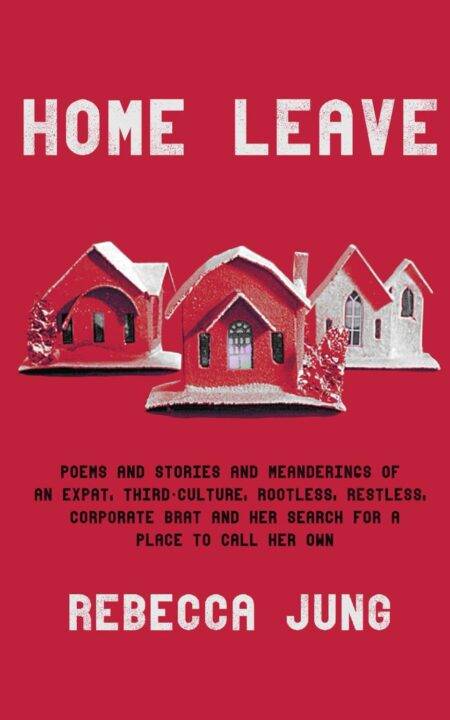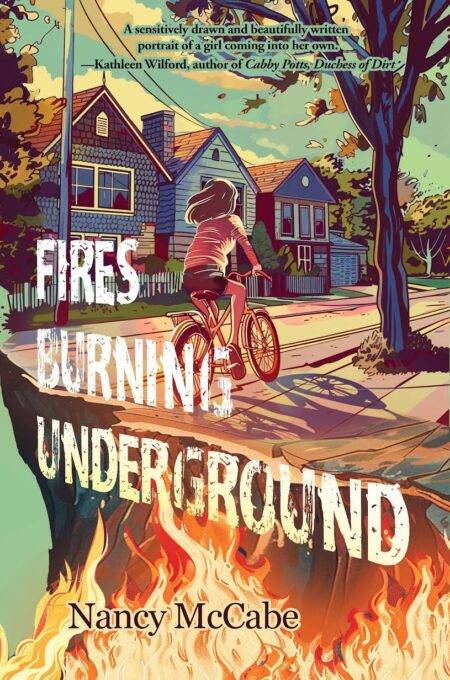About the Author: Mark Saba grew up in Pittsburgh of Italian and Polish heritage. He is the author of poetry books Calling the Names and Painting a Disappearing Canvas, as well as the fiction titles A Luke of All Ages/Fire and Ice (novellas) and Ghost Tracks: Stories of Pittsburgh Past. His poetry, fiction, and nonfiction have appeared widely in literary magazines and anthologies as well. Also a visual artist, he paints and produces poetry videos. Recently he retired from his position as medical illustrator and graphic designer at Yale University. He and his wife now live in Maine.
Author Site “In writer Mark Saba’s poetry collection, Flowers in the Dark, rich evocative poems depict landscapes of the heart, home, and time travels. A keen observer who respects the Earth, Saba has crossed life’s shadows and underscores what matters. He muses on his roots in the Allegheny foothills of Pittsburgh, traditions of grandparents from the Old World, and the plight of today’s immigrants. Weaving in exquisite metaphors and vivid scenes that appeal to all the senses, Saba recalls the power of pulsating clouds, blush peonies on a home altar, and creaking trees. Many thought-provoking poems end on notes of upbeat resignation. Lessons learned during a lifelong storm, he now values the essence of words, an object’s roots. In this timeless book, Saba brilliantly captures quotidian happenings that have evolved into treasured milestones. —Amy Barone, poet and author of Defying Extinction and We Became Summer
More Info Don’t miss out: Mark Saba will be presenting at the Writers Conference of Northern Appalachia (March 10-11, 2023 at Robert Morris University)!
Event Info
The Wee Hours
My desk lamp spreads the same quiet
as the cool evening air that echoes
across mountains and plateaus
to my homeland hamlet, where worms
still wriggle under the matted grass
and roses still bloom in the wind.
If I wrote a song it would contain
decades of verse, a melody
known only to the darkness of sleep,
the wee hours of morning
when a mother’s kiss still lingers
on the cheek, when a family dreams
together, and exhales into the eternal pause
that will become at once familiar
after we’ve taken our ambitions
to the daybreak world, where there
they wither, the night returns,
and we are one again, and those who have passed
join in dreaming, together, again.
Schizophrenia
The gym teacher pitted us against
each other. We wrestled, but neither
gave in. Weekends we walked busy streets,
mindful of the future that would take us
but safe in our own views.
Once or twice we skipped school
to fish in the dirty Monongahela
or Allegheny, catching carp that fed off
vegetable detritus from the Heinz factory.
I could get you to laugh, to find a break
from the ping pong in your brain
but never did I call you out
for being anything I wasn’t.
What’s worse: an early diagnosis
or slow descent through decades
into a chaos that blurs the line?
I refuse to name it: the hovering moth
above my bed at 2 AM, the gentle way
it lingered there, the day after you died,
then disappeared when I tried to shoo it away.
Damn the Dirty Dishes
Damn the dirty dishes, the order
of the well-stocked cupboard. Damn the money
curled in my wallet. Damn the day
I’ve filled with obligations, the pleasantries
I exchange with acquaintances.
Damn this whole country of thieves
and snake oil salesmen. Damn my stomach
that always demands to be filled.
Damn the flowers in the vase that are
so out of season.
Why am I not standing, sitting,
or running with arms wide open?
Why do I not call my best friend from college
to tell him I loved him? That I ache
to repeat conversations that took time away?
Why not shout loudly, repeating ad infinitum
that there is nothing but love in this world?
Why not shake everyone I meet by the shoulders
and say don’t you see, don’t you see?
The Party Is Over
My grandmother said they moved to America
so they wouldn’t have to wash their clothes
on river rock. Breathing the air of Pittsburgh’s mills
was a small price to pay for a washing machine.
In time she and her husband bought a house
where they raised a son, fermented wine, and lauded
Mister Roosevelt’s social security. Years passed.
She never wanted to go back to her desolate Abruzzo
with its poisonous snakes, mountain bears,
and straw brooms. The offspring of her extended family
bought even bigger homes, imposing automobiles,
and new barriers between them and those scary
American Africans. Soon they ran out of things to buy.
After two more generations their wanting increased
but there was no longer anything to run from.
Now Pittsburgh’s rivers are clean enough for washing laundry
but no one wants to do it there while singing
to rosemary-filled air and bleating sheep,
forgetting the inventory of manufactured needs
that have erased their souls.
This excerpt from Flowers in the Dark is published here courtesy of the author and publisher and should not be reprinted without permission.


